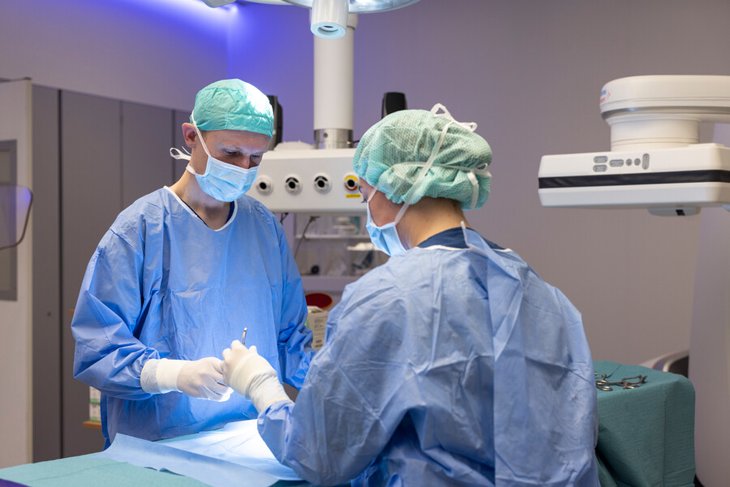Do I need healthcare?
Yes. By law, healthcare insurance is required. If you’re uninsured, and the government finds out, prepare to receive a letter from the CAK (Centraal Administratie Kantoor) with details on what to do, and a hefty fine if you don’t comply.
If you’re from the EU/EEA, your European Health Insurance Card may cover temporary care, but not all services. Once you start working, even part-time, you’ll most likely be legally required to get Dutch basic insurance. If you’re a non-EU student, you’ll need to either take out a private health insurance (such as AON) or use a university-arranged plan until you start working, in which case Dutch insurance becomes mandatory.
To sign up for the healthcare system, you must have a citizen service number (BSN), which you will get when you register with the municipality, choose among a variety of healthcare providers, and then register with a GP.
Is healthcare free?
No. The Netherlands has universal healthcare, yes, but every working adult (aged 18 and above) living and working in the Netherlands must have basic insurance. This basic plan will cost you around €100-120 out of pocket, depending on your provider, plus an extra €20ish for dental coverage (and any other extra coverage you choose). Most students I talk to have some form of basic + dental, because teeth are important ;).
If you’re earning below a certain threshold, you might be eligible for zorgtoeslag, a monthly healthcare allowance provided by the government. You must apply for this separately through the Belastingdienst (Tax Office) – it’s not automatic.
What does basic insurance cover?
The basic plan (Dutch: basisverzekering) is regulated by the government and must cover certain essential care. This typically includes:
- GP visits
- Hospital stays
- Emergency care
- Most prescription medications
- Basic mental healthcare
- Limited physiotherapy
It does not, however, include:
- Dental care (for adults)
- Glasses or contacts
- Cosmetic treatments
- More expensive forms of medicine
For a more detailed list, consult the website of Rijksoverheid.
What is eigen risico (own risk)?
Every basic plan comes with something called eigen risico, translated as ‘own risk’, and known as a deductible. This is the maximum amount you’ll need to pay out of pocket per year before insurance kicks in. The standard amount is €385 per year, but you can increase it to €885 per year to lower your monthly premium (though this may not always be advisable – read the fine print!).
Which healthcare provider should I choose?
All healthcare providers are required to do the same things by the government, so whatever choice you make, your results will largely be the same. Unless you require a specific type of treatment or a clause that only certain companies provide, I would suggest going on insurance comparison websites such as independer.nl or zorgwijzer.nl and comparing which provider is cheapest. You can change providers once a year, so if you’re unhappy with your current one, I would suggest looking around again in November and changing then. If you are looking for a GP, dentist or other healthcare provider, Zorgkaart Nederland is helpful too.
What kind of healthcare services are there?
General Practitioners
For medication prescriptions, non-urgent medical complaints, or a checkup and further referral to a specialist, you can consult a GP (Dutch: Huisarts). Your GP is your first point of contact in case of any medical questions or concerns, so you should register with one as soon as possible – you do this by searching which GP is closest to you, applying either by phone call or online, and waiting. You can do this through websites such as Zorgkaart Nederland, though do check if the GPs are currently accepting new patients.
Emergency healthcare
If you find yourself in a life-threatening situation, remember to call 112 for an ambulance or 0800 8112 if you have speech/hearing problems. You can also call 113 for suicide prevention and help!
Out-of-hours doctors
If you find yourself needing to see a doctor outside of walk-in hours, you can go to an out-of-hours doctor’s service (Dutch: huisartsenpost), though be aware that these often incur extra charges. Usually, in scenarios where you need a doctor but nothing is open, you’d call your GP and be redirected to the emergency department.
Drugstores and pharmacies
Drugstores supply non-prescription medications. For prescribed medication, visit a pharmacy (Dutch: apotheek). Over-the-counter medications include the aforementioned Paracetamol, other pain relievers such as Ibuprofen, cold remedies, allergy medications, digestive aids, bandages, vitamins, skin/hair/baby care, and more. If your GP prescribes a specific medicine, then you need to visit a pharmacy, and you do this by registering with a pharmacy as well.
Public Health Department (GGD)
The GGD have a number of statutory tasks, including infectious disease control, health monitoring, vaccinations, sexual health advice and testing, and health education in general.
Dental care
As you might have inferred already, dental care isn’t covered by the basic plan, but you can easily add extra coverage. Again, you have to register yourself as a new patient by making a phone call to the dental practice or registering online.
Mental healthcare
If you have any questions/concerns about your mental health, you can consult your GP, and they can refer you to a specialist. Do remember, though, that if you’re a student at a university, it’s likely that there will be a team of psychologists or student mentors who provide support to students. At UT, you can visit the student psychologists on campus for free.
If you’ve made it this far – congratulations! You probably know more about the Dutch healthcare system than most people. Just remember to register early (as there are waiting lists), apply for zorgtoeslag if you can, and don’t be surprised if Paracetamol is offered to treat basically anything short of a broken arm.




